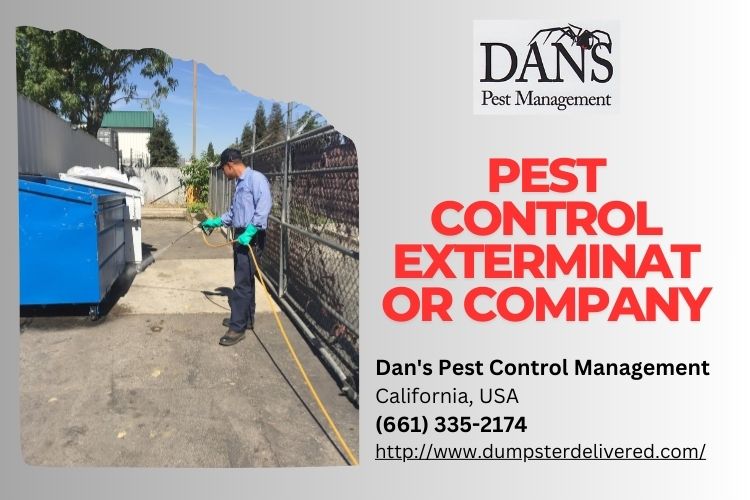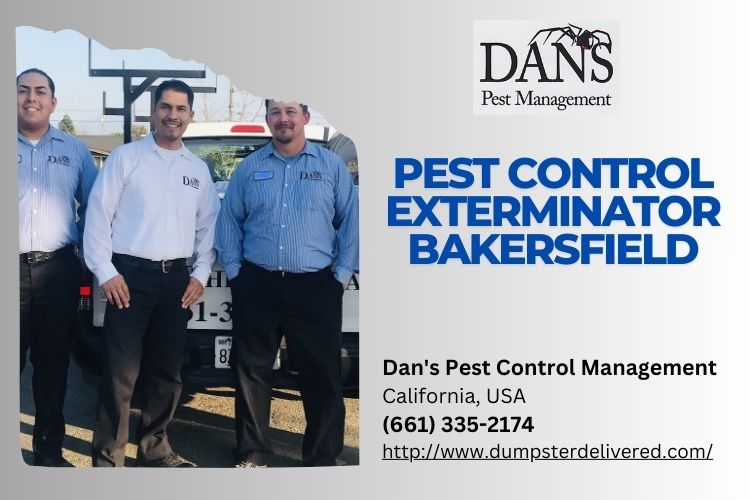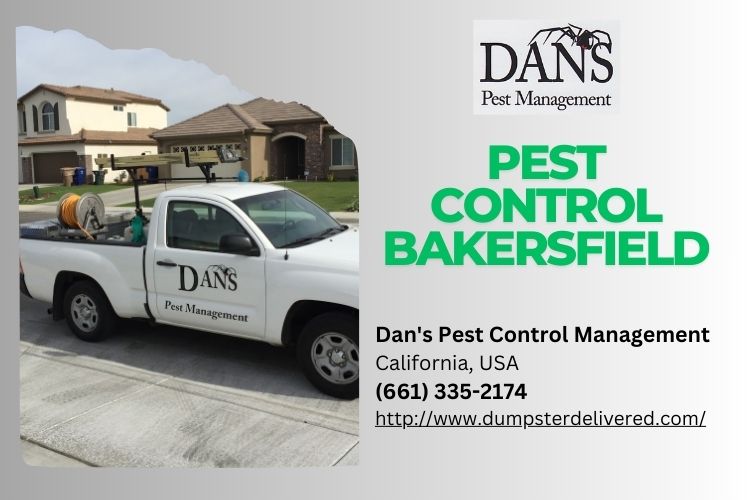Introduction
California is known for its beautiful weather and diverse ecosystems, but it also has its fair share of pests. From ants marching into your kitchen to rodents scurrying across your garage, maintaining a pest-free home requires year-round vigilance. Seasonal changes bring unique challenges that can affect pest populations in your area. Understanding how to prepare your home for each season is essential for effective pest control.
In this extensive guide, we’ll dive deep into the various aspects of seasonal pest control, providing you with actionable tips tailored specifically to California’s climate. Whether you're dealing with pesky mosquitoes in summer or stubborn rodents in winter, this article will equip you with the knowledge to tackle any situation.
Seasonal Pest Control: How to Prepare Your Home for Each California Season
California's climate varies widely from region to region, creating different environments for pests. Effective pest control service strategies must adapt accordingly. The following sections will break down the seasonal preparations needed to keep insects and other pests at bay.

Spring Pest Preparation
Understanding Spring Pests
As temperatures begin to rise in spring, many pests awaken from their winter slumber. Common culprits include:
- Ants Spiders Termites Mosquitoes
Understanding these pests' life cycles can help you anticipate their emergence.
Inspection of Your Home
The first step in preparing your home for spring is conducting a thorough inspection. Look for:
- Cracks in walls or foundations Gaps around windows and doors Damp areas that may attract termites and other moisture-loving pests
Sealing Entry Points
Once you've identified potential entry points, sealing them up is crucial. Use caulk or weather stripping to close gaps and prevent easy access.
Yard Cleanup
Your yard is an extension of your home and can harbor many pests. Regularly mow the lawn, trim hedges, and remove debris like fallen leaves that can serve as cozy habitats for insects.
Professional Pest Control Service
If you're unsure about handling infestations on your own, hiring a professional pest control service can provide peace of mind and ensure effective treatment.
Summer Pest Management
Identifying Summer Pests
Summer brings heat and increased activity among pests such as:
- Flies Wasps Ants Fleas
These critters are not only annoying but can also pose health risks.
Keeping Food Sealed
To deter flies and ants, make sure all food items are sealed tightly. This includes pantry goods as well as outdoor food items during barbecues.
Regular Lawn Maintenance
Maintaining your lawn doesn't just make it look good; it also minimizes pest habitats. Keep grass short and remove standing water where mosquitoes breed.
Creating Barriers Against Common Pests
Consider installing screens on windows and doors to prevent wasps and flies from entering your home while still allowing fresh air inside.
Schedule Summer Treatments with Professionals
A proactive approach involves scheduling summer treatments with a pest control service before problems arise. Regular monitoring helps keep populations low.
Fall Pest Prevention
Preparing for Fall Invasion
As temperatures drop in fall, many pests seek shelter indoors. Common invaders include:

- Spiders Mice Cockroaches
These pests are often looking for warm places to nest.
Inspecting Attics and Basements
Conduct an inspection of less-frequented areas such as attics or basements where critters might enter unnoticed. Look out for droppings or gnaw marks indicating rodent presence.
Closing Off Entry Points Again
As part of your fall prep routine, revisit the seals around doors and windows every few months as they may deteriorate over time.
Storing Firewood Safely
If you use firewood during colder months, store it at least 20 feet away from your home’s foundation to minimize the risk of attracting pests like termites or rodents.
Winter Pest Control Strategies
Recognizing Winter Pests
While some insects go dormant in winter, others remain active indoors. Common winter pests include:
- Rodents Bedbugs Silverfish
Understanding which species tend to invade during winter aids preparation efforts.
Indoor Inspections are Key
Check under sinks, behind appliances, and within cabinets for signs of activity—droppings or nests indicate an infestation that pest control exterminator company needs addressing immediately.
Temperature Management Inside Your Home
Keep homes well-heated during winter months; cold homes attract more pests seeking warmth. However, avoid making sudden temperature changes that might drive them away temporarily but cause re-infestation later on when conditions become favorable again.
Common Questions About Seasonal Pest Control
1. What are some common signs that I need a pest control service?
Common signs include droppings around food storage areas, visible nests or webs in corners, unexplained bites on skin after sleeping at night (indicating bedbugs), or unusual noises within walls (suggesting rodents).
2. How often should I have my home inspected by a pest control professional?
It’s generally recommended to schedule inspections twice yearly—once in spring before insect activity peaks again during summer months; another round should occur after harvest season when many critters look indoors for warmth!
3. Are there eco-friendly options available with pest control services?
Yes! Many companies offer green solutions using non-toxic methods designed specifically targeting specific types without harming beneficial insects such as bees which play vital roles pollinating crops!
4. Can I handle minor infestations myself?
Certainly! For minor situations involving small ant trails or isolated spider webs—using traps combined with natural deterrents like peppermint oil mixed with water sprayed onto surfaces works effectively!
5. When should I call an exterminator instead of trying DIY methods?
If you notice large nests present (especially wasp colonies) or persistent rodent sightings despite preventive measures taken previously—it's best not risking potential hazardous encounters; call professionals equipped handle these situations safely!
6. Do preventative measures actually work against future infestations?
Absolutely! Implementing seasonal strategies significantly reduces likelihood encountering unwanted guests later down road while simultaneously improving overall hygiene standards throughout household environment too!
Conclusion
Pest management isn’t simply about fumigation; it's about understanding the seasonal patterns specific to California's diverse climates and preparing accordingly throughout the year! By implementing proactive strategies—from sealing gaps during springtime through consistent monitoring practices next autumn—you can create an inhospitable environment for unwanted guests while ensuring optimal living conditions inside all year long!
Engaging a reliable pest control service becomes indispensable when facing persistent issues—they possess expertise necessary tackling severe infestations safely efficiently allowing homeowners focus enjoying their spaces instead worrying about uninvited intruders lurking around corners!
Contact Us
Dan's Pest Control Management
Address: California, USA

Phone number: (661) 335-2174
Website: http://danspestmanagement.com/